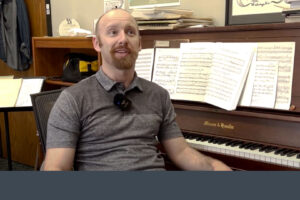This year marks the 10th anniversary of Hurricane Katrina, which exposed many Americans to class and racial inequities as evidenced by media coverage of the hurricane, failed levees, poor evacuation plan and slow federal response.
But this year also marks the 10th anniversary of a bold experiment to inject market principles into public education in New Orleans.
Local politicians and reformers used the post-storm chaos to pass key legislation that transformed the New Orleans school system from one with a handful of charter schools in 2005 to more than 90 percent in 2015.
Proponents of these policies argue that they have generated a “New Orleans Miracle” as shown by clear upward trends in average student achievement, the consistent shutting down of “failing” schools and a new, nationally recruited teaching force.
Regardless, there is one important question that has been neglected in most policy debates. What is the cost of the New Orleans Miracle and whom does it benefit most?
The Recovery School District took over the vast majority of schools in New Orleans — more than 90 percent — but it did not take over the entire school district. Hence, the scope of the traditional district has been significantly limited, though not completely dissolved.
Voters in New Orleans have not been entirely disenfranchised, but they have lost control over the majority of their public schools, and they have almost no say in whether they will get those schools back.
Parents and other community members should also be concerned about their ability to participate in decision-making about schools. Charter-school boards have been criticized for violating open-meetings laws, and the Recovery School District, until 2011, met in Baton Rouge, 80 miles away from the families in New Orleans whose children attend these schools.
Understandably, there is some opposition to the reforms particularly because of the diminished local control and transparency. Some leaders and parents want to return to local control, whereby the local voting population, which remains majority black, would elect board members to oversee the city’s schools, both traditional and charter.
The other element contributing to the opposition is the perception that Act 35, legislation that spurred this reform effort, was a white takeover of a district run by black leaders, and that it signaled a lack of faith in the ability of black leaders to improve schools.
At the same time, New Orleanians still distrust the Orleans Parish School Board (OPSB). One poll showed that only 34 percent favored return of the schools to OPSB control, perhaps because of its corrupt history.
Despite these challenges, the Recovery School District must work closely with the OPSB to return schools to local oversight. Given the politicized nature, the traditional school board system is certainly not an ideal democratic system. However, democratic forms of oversight can potentially provide a structured and institutionalized avenue for change.
Recently, some charter schools have voted to return to the oversight of the OPSB, but more should do so. Providing oversight will help to provide more avenues for public input into the operations of charter schools, now serving more than 90 percent of New Orleans public schoolchildren.
Recent protests about the strict discipline policies and “no excuses” approach effects at some charter networks raise concerns about the extent to which there is community input into how these organizations operate and whether they reflect the desires of parents.
Even if the post-Katrina reforms end up showing some clear gains in student achievement, it is important to ask how much local, democratic oversight the public is willing, or should be willing, to trade for somewhat higher-performing schools. It is important also to consider their effects on communities and the democratic control of schools, as well as how they reproduce or break from historical patterns of political struggle and inequality.
In New Orleans, as well as in the many cities and states seeking to adopt a “recovery” or “portfolio” model, policymakers should ensure that the temporary turnaround measures do not permanently disenfranchise local parents and other stakeholders — especially when the stated purpose of these reforms is to push power and control down to the local level.
Huriya Jabbar is an assistant professor of educational administration at The University of Texas at Austin who has extensively studied school choice and competition in New Orleans. Mark A. Gooden is an associate professor of educational administration and director of the principalship program at The University of Texas at Austin.
To view more op-eds from Texas Perspectives, click here.
Like us on Facebook.



